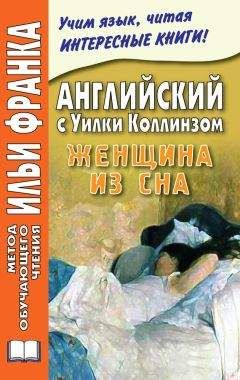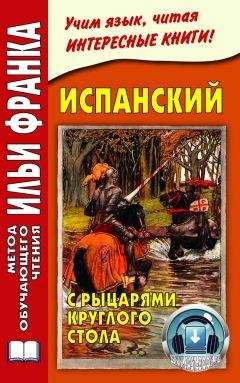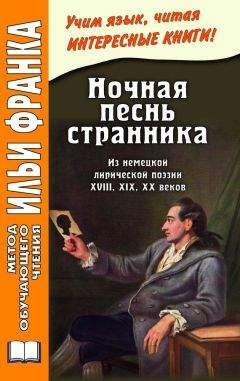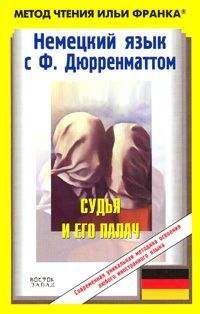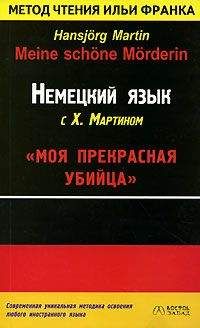There is nothing for it but to take the bridle road up the hill, and try what we can discover on the other side. I transfer the saddles, and mount my wife on my own horse. He is not used to carry a lady; he misses the familiar pressure of a man’s legs on either side of him; he fidgets, and starts, and kicks up the dust. I follow on foot, at a respectful distance from his heels, leading the lame horse. Is there a more miserable object on the face of creation than a lame horse? I have seen lame men and lame dogs who were cheerful creatures; but I never yet saw a lame horse who didn’t look heartbroken over his own misfortune.
For half an hour my wife capers and curvets sideways along the bridle road (полчаса моя жена /то и дело/ отскакивает в сторону на этой верховой тропе; half – половина; to caper – скакать, прыгать; to curvet – делать курбет /прыжок верховой лошади с поджатыми ногами/; прыгать). I trudge on behind her (я устало тащусь за ней; to trudge – идти с трудом, устало тащиться; behind – позади, за); and the heartbroken horse halts behind me (несчастная лошадь хромает за мной; to halt – останавливать/ся/; запинаться; /уст./ хромать). Hard by the top of the hill (рядом с вершиной холма; hard by – рядом, близко; hard – твердо, крепко; близко, рядом), our melancholy procession passes a Somersetshire peasant at work in a field (наша печальная процессия проходит мимо сомерсетширского крестьянина, работающего: «за работой» в поле; melancholy – унылый, мрачный, подавленный). I summon the man to approach us (я кричу этому человеку, чтобы он подошел к нам; to summon – позвать, вызвать; to approach – подходить, приближаться); and the man looks at me stolidly (он смотрит на меня флегматично; stolid – флегматичный, бесстрастный), from the middle of the field, without stirring a step (с середины поля, не делая ни шагу; without – без; без того, чтобы; to stir – шевелить/ся/, двигать/ся/). I ask at the top of my voice how far it is to Farleigh Hall (я /кричу/ во весь голос, спрашивая, как далеко до Фарли-Холла; at the top of one’s voice – во весь голос, во всю силу легких; top – вершина; высшая степень, высшая ступень). The Somersetshire peasant answers at the top of his voice (сомерсетширский крестьянин отвечает, /крича/ во весь свой голос):
“Vourteen mile. Gi’ oi a drap o’ zyder (= Fourteen miles. Give me a drop of cider. Четырнадцать миль. Дайте мне глоток сидра; mile – миля /единица длины = 1609 м/; drop – капля; небольшое количество; глоток).”
For half an hour my wife capers and curvets sideways along the bridle road. I trudge on behind her; and the heartbroken horse halts behind me. Hard by the top of the hill, our melancholy procession passes a Somersetshire peasant at work in a field. I summon the man to approach us; and the man looks at me stolidly, from the middle of the field, without stirring a step. I ask at the top of my voice how far it is to Farleigh Hall. The Somersetshire peasant answers at the top of his voice:
“Vourteen mile. Gi’ oi a drap o’ zyder.”
I translate (for my wife’s benefit) from the Somersetshire language into the English language (я перевожу (для жены) с сомерсетширского языка на английский; benefit – польза, благо). We are fourteen miles from Farleigh Hall (мы /находимся/ в четырнадцати милях от Фарли-Холла); and our friend in the field desires to be rewarded (и наш друг в поле желает быть вознагражденным), for giving us that information, with a drop of cider (за то, что дал нам эти сведения, глотком сидра). There is the peasant, painted by himself (вот крестьянин, изображенный самим собой = вот крестьянин во всей красе/истинный портрет крестьянина; to paint – красить; рисовать, писать /красками/; изображать, описывать)! Quite a bit of character, my dear (боже мой, ну и характер; quite a bit – довольно много; bit – кусочек; небольшое количество; quite a character – большой оригинал, чудак; dear – дорогой; боже мой!, вот те на! /выражает сожаление, удивление, досаду и т. д./)! Quite a bit of character!
Mrs. Fairbank doesn’t view the study of agricultural human nature with my relish (миссис Фэрбанк не разделяет моего интереса к изучению земледельческой человеческой природы = натуры земледельца; to view – осматривать; оценивать, судить /о чем-л/; видеть; study – изучение, исследование; relish – удовольствие, вкус; склонность /к чему-л./). Her fidgety horse will not allow her a moment’s repose (ее беспокойный конь /всё/ не даст ей ни минуты покоя; to allow – позволять, разрешать; давать возможность /чего-л./; repose – отдых, передышка; покой); she is beginning to lose her temper (она начинает терять самообладание; to lose one’s temper – выйти из себя, потерять самообладание, вспылить; temper – нрав, характер; самообладание, сдержанность).
I translate (for my wife’s benefit) from the Somersetshire language into the English language. We are fourteen miles from Farleigh Hall; and our friend in the field desires to be rewarded, for giving us that information, with a drop of cider. There is the peasant, painted by himself! Quite a bit of character, my dear! Quite a bit of character!
Mrs. Fairbank doesn’t view the study of agricultural human nature with my relish. Her fidgety horse will not allow her a moment’s repose; she is beginning to lose her temper.
“We can’t go fourteen miles in this way,” she says (мы не можем пройти четырнадцать миль так/таким образом, – говорит она). “Where is the nearest inn (где ближайшая гостиница)? Ask that brute in the field (спроси того грубияна в поле; brute – животное, тварь; жестокий, глупый или грубый человек)!”
I take a shilling from my pocket and hold it up in the sun (я достаю шиллинг из кармана и выставляю его на солнце; shilling – шиллинг /монета чеканилась до 1971; = 1/20 фунта стерлингов или 12 пенсам/; to hold up – показывать, выставлять).
The shilling exercises magnetic virtues (шиллинг проявляет магнетические свойства; to exercise – упражнять/ся/; осуществлять; проявлять; magnetic – магнитный; магнетический, притягательный; magnet – магнит; virtue – добродетель; сила, действие). The shilling draws the peasant slowly toward me from the middle of the field (шиллинг медленно притягивает крестьянина ко мне с середины поля; to draw – тянуть, тащить; притягивать; slow – медленный). I inform him that we want to put up the horses and to hire a carriage to take us back to Farleigh Hall (я сообщаю ему, что мы хотим /где-нибудь/ оставить лошадей и нанять экипаж, чтобы он отвез нас обратно в Фарли-Холл; to inform – сообщать, информировать; to put up – принимать, давать приют /гостям/; останавливаться, размещаться /где-л./; to put – класть; помещать, размещать; carriage – экипаж; карета; коляска; to take – брать; доставлять, отводить, отвозить /кого-л., что-л./). Where can we do that (где мы можем это сделать)? The peasant answers (with his eye on the shilling) (крестьянин отвечает со взором на шиллинге = не сводя глаз с шиллинга; eye – глаз; взгляд, взор):
“At Oonderbridge, to be zure (= At Underbridge, to be sure. В Андербридже, конечно; under – под, ниже; bridge – мост; sure – уверенный; несомненный, бесспорный).”
“Is it far to Underbridge (далеко до Андербриджа)?”
“We can’t go fourteen miles in this way,” she says. “Where is the nearest inn? Ask that brute in the field!”
I take a shilling from my pocket and hold it up in the sun.
The shilling exercises magnetic virtues. The shilling draws the peasant slowly toward me from the middle of the field. I inform him that we want to put up the horses and to hire a carriage to take us back to Farleigh Hall. Where can we do that? The peasant answers (with his eye on the shilling):
“At Oonderbridge, to be zure.” (At Underbridge, to be sure.)
“Is it far to Underbridge?”
The peasant repeats, “Var to Oonderbridge (крестьянин повторяет: «Далеко ли до Андербриджа?»)?” – and laughs at the question (и смеется над этим вопросом). “Hoo-hoo-hoo!” (Underbridge is evidently close by – if we could only find it.) («Ого-го!» – Андербридж, очевидно, находится поблизости – если мы только сможем его найти; hoo – ого-го!, ау! /выражение удивления, радости или призыва/; evident – очевидный, явный) “Will you show us the way, my man (не покажете ли нам дорогу, любезный: «мой человек»; man – человек, мужчина; /разг./ приятель, милый)?” “Will you gi’ oi a drap of zyder (а вы дадите мне глоток сидра)?” I courteously bend my head, and point to the shilling (я учтиво наклоняю голову и указываю на шиллинг; courteous – вежливый, учтивый, любезный; court – двор /при правителе/; to bend – гнуть/ся/, сгибать/ся/; наклонять/ся/). The agricultural intelligence exerts itself (земледельческий ум проявляет себя; intelligence – ум, интеллект; умственные способности; to exert – напрягать /силы/; прилагать /усилия/; проявлять). The peasant joins our melancholy procession (крестьянин присоединяется к нашей печальной процессии). My wife is a fine woman, but he never once looks at my wife (моя жена красивая женщина, но он ни разу не смотрит на нее; fine – прекрасный, превосходный; never – никогда; ни разу; once – /один/ раз; однажды) – and, more extraordinary still, he never even looks at the horses (и, что еще удивительнее, он ни разу даже не смотрит на лошадей; extraordinary – необычайный, странный; удивительный; still – еще; все же). His eyes are with his mind (его глаза следуют за мыслью; mind – ум, разум; мысли; стремление) – and his mind is on the shilling (а его мысль /направлена/ на шиллинг).
The peasant repeats, “Var to Oonderbridge?” – and laughs at the question. “Hoo-hoo-hoo!” (Underbridge is evidently close by – if we could only find it.) “Will you show us the way, my man?” “Will you gi’ oi a drap of zyder?” I courteously bend my head, and point to the shilling. The agricultural intelligence exerts itself. The peasant joins our melancholy procession. My wife is a fine woman, but he never once looks at my wife – and, more extraordinary still, he never even looks at the horses. His eyes are with his mind – and his mind is on the shilling.
We reach the top of the hill (мы достигаем вершины холма) – and, behold on the other side, nestling in a valley (и вот, на другой стороне, укрывшись в долине; to behold – увидеть, заметить; созерцать; behold! – вот!, смотри!; to nestle – уютно устроиться; ютиться; укрываться; nest – гнездо), the shrine of our pilgrimage, the town of Underbridge (находится цель нашего паломничества – город Андербридж; shrine – святыня, место поклонения; pilgrim – пилигрим, паломник; странник)! Here our guide claims his shilling (здесь наш проводник требует свой шиллинг; to claim – требовать, заявлять о своих правах /на что-л./), and leaves us to find out the inn for ourselves (и покидает нас /предоставив/ нам самим искать гостиницу; to leave – уходить; покидать, оставлять). I am constitutionally a polite man (я по характеру вежливый человек; constitutionally – сообразно телосложению, складу ума, характеру; constitution – конституция, телосложение; склад ума; характер). I say “Good morning” at parting (я говорю «Всего доброго!» на прощание; good morning! – доброе утро!; до свидания!, всего доброго! /при расставании утром/; parting – расставание; прощание; to part – разделяться; разлучаться, расставаться). The guide looks at me with the shilling between his teeth to make sure that it is a good one (проводник смотрит на меня с шиллингом между зубами = пробуя шиллинг на зуб, чтобы убедиться, что он настоящий; tooth – зуб; good – хороший; настоящий, неподдельный). “Marnin!” he says savagely (и вам! – говорит он грубо; marnin = morning; savage – дикий; жестокий, свирепый; грубый) – and turns his back on us, as if we had offended him (и поворачивает свою спину на нас = поворачивается к нам спиной, как будто мы его обидели; to offend – обижать, оскорблять). A curious product, this, of the growth of civilization (занятный же плод приносит развитие цивилизации; curious – любопытный; чудной, курьезный; product – продукт, изделие; плод, результат; growth – рост, развитие; to grow – расти, произрастать). If I didn’t see a church spire at Underbridge (если бы я не видел церковный шпиль в Андербридже; church – церковь; spire – стрелка /злака/; росток; шпиль; остроконечная верхушка), I might suppose that we had lost ourselves on a savage island (то мог бы подумать, что мы потерялись: «потеряли себя» на диком острове; to suppose – думать, /пред/полагать).
